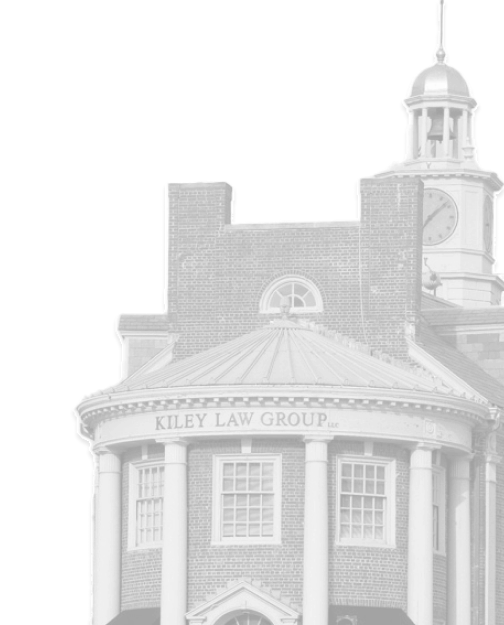Who you hire after a car crash affects how quickly you recover, how much you receive, and how much stress you have to manage are essential questions for your car accident lawyer. This guide walks you through what to ask at your first meeting, how to judge experience and communication, why local knowledge in places like Methuen and Lowell matters, and how a typical case moves from investigation to trial. If you aren’t sure which questions reveal true competence, use the prioritized checklist, practical evaluation tips, and realistic timelines below. You’ll also find an explanation of how fault and damages are proven, settlement versus trial trade-offs, and the extra resources — investigators, medical experts, and experienced staff — that change outcomes. Take the sample questions and comparison points to your consultation so you can choose a car accident lawyer in Methuen or Lowell with confidence.
Begin with a short, focused set of questions that uncover the lawyer’s relevant experience, fee setup, trial readiness, valuation approach, and how you’ll stay informed. Those topics reveal whether a lawyer can manage the whole lifecycle of your claim — from collecting evidence and handling medical liens to negotiating a fair settlement or taking the case to trial. These questions also help you compare different kinds of personal injury representation, like truck or motorcycle accident lawyers, and see how a firm will apply its resources to your situation. Below is a consultation-ready checklist that highlights what matters most.
The five key questions to ask at your first meeting are:
These questions focus on what predicts results: technical experience, financial alignment, clear communication, litigation readiness, and how the claim will be valued. Asking them in order moves you from basic facts to strategic judgment and prepares you for more detailed questions about court procedures and expert witnesses.
Below is a quick comparison of the main question topics with concrete examples you can use in a consultation.
| Topic | What to Ask | Practical Example/Value |
| Experience | "How many cases like mine have you handled?" | Shows pattern recognition and familiarity with similar facts |
| Fee Structure | "What percentage is your contingency fee and what costs will I owe?" | Clarifies net recovery and potential out-of-pocket costs |
| Trial Readiness | "How many cases have you tried to a verdict?" | Signals negotiation leverage and courtroom skill |
| Valuation | "How would you calculate my economic and non-economic damages?" | Reveals the method used to set settlement demands |
| Availability | "Who will be my point of contact and how often will I get updates?" | Sets expectations for communication and client care |
Experience isn’t just years in practice — it’s a record of handling the same injury patterns, vehicle types, and local courts that will decide your claim. Ask for the number of comparable matters, anonymized examples of outcomes, and whether the attorney regularly deals with issues like multiple at-fault parties, medical lien negotiations, or catastrophic injuries. Confirm credentials through state bar records and reputable directories, and clarify which tasks a trial attorney handles versus paralegals. These details help you judge whether the lawyer’s experience matches your case and what to expect from their representation.
Once you understand experience, you’re ready to talk about fees and contingency terms — how a firm charges often reflects the complexity of the work it takes on.
Auto Accident Lawsuits: Attorney Retention and Litigation Decisions
The analysis is based on cross-sectional data for 9,610 auto accident cases, examining decisions to retain an attorney and file a lawsuit versus settling the claim without litigation.
Decisions to retain attorneys and file lawsuits: An examination of the comparative negligence rule in accident law, JK Smith, 1995

With a contingency fee, the lawyer is paid from your recovery: they front work and costs and take a pre-agreed percentage of the settlement or verdict. Ask what that percentage is, whether costs are deducted before or after the fee, and which expenses you might owe if there’s no recovery. Clarify how medical liens and subrogation claims are handled and whether the firm advances expert and litigation costs. These details show your likely net recovery and whether the attorney has the financial bandwidth to take a case through discovery and trial if needed.
Kiley Law Group, for example, offers free consultations and works on a contingency basis — you generally pay no fees unless they recover for you. Still, confirm specific percentages, cost handling, and any exceptions during your consultation so you aren’t surprised later. Next we’ll cover how to assess communication and client service during that initial meeting.
Clear communication and thoughtful client service matter. They keep medical care coordinated, evidence moving, and decisions informed. Before you sign, agree on who will handle daily calls, which channels (phone, email, text) are used, and reasonable response times for questions about offers or medical records. Look for a written engagement that sets update frequency and names a single point of contact who will translate legal language into practical steps for your recovery. Comparing responsiveness between firms tells you who treats clients as people, not files.
Use this short checklist during your consultation to evaluate communication and service.
These questions reveal the firm’s day-to-day habits and whether you’ll feel supported through the claim process.
Reasonable update frequency balances regular check-ins with milestone-driven alerts for offers, discovery progress, and medical lien activity. Many firms send monthly written updates and immediate notices for major events like a demand, mediation date, or trial setting. Ask for a sample cadence and whether updates can be increased during active settlement negotiations. Also ask whether updates come straight from the attorney or are prepared by staff and how that affects access to decision-makers. Clear expectations prevent confusion and help you respond quickly when offers arrive.
Client testimonials and anonymized case summaries help verify claims about communication, outcomes, and care—without breaking confidentiality. Ask where to find independent reviews and whether the attorney can share anonymized examples like cases similar to yours. Cross-check public profiles and court records to confirm patterns in responsiveness, negotiation skill, and trial preparation. Testimonials that consistently praise communication and lien negotiation often reflect solid internal systems that will benefit your claim.
With testimonials checked, the next priority is local expertise and court familiarity.
Local knowledge matters. A lawyer who regularly appears in Methuen or Lowell courts knows local procedures, judge preferences, common crash locations, and which medical providers create persuasive records. That familiarity speeds evidence collection, scheduling, and negotiation. For crashes near the Massachusetts–New Hampshire line, cross-state rules about deadlines and comparative fault change strategy. Choosing a lawyer with regional experience often means faster intake, better coordination with treating doctors, and a clearer path through local court calendars.
Kiley Law Group serves Massachusetts and New Hampshire communities including Methuen and Lowell. That regional footprint can make it easier to access records quickly, meet in person when needed, and tailor negotiation strategies to local insurer behavior. Their presence shows the practical advantage of working with lawyers who know the area.
Familiarity with local judges and court staff shortens the learning curve. Ask whether the attorney has handled cases in your county or district and for examples of how local knowledge changed strategy or sped resolution. An attorney who knows which judges prefer early settlement conferences or which clerks move certain filings faster can save time and money. Those procedural efficiencies often improve settlement timing and client convenience, so local court experience should carry weight in your decision.
Understanding court familiarity sets the stage for discussing state-law differences, especially in cross-border cases.
State rules—like comparative negligence standards, damage caps, and statutes of limitations affect how a claim is pursued and valued. Confirm that the attorney has experience in the state where the case will be filed and ask how cross-border incidents are handled when parties or treatment span Massachusetts and New Hampshire. A lawyer versed in both states can advise on deadlines, evidence admissibility, and tactical choices that shape settlement expectations. Knowing these distinctions up front prevents procedural surprises that can hurt recovery.
With those legal nuances clear, we map the typical case process and likely outcomes next.
Knowing the usual stages of a car accident claim sets realistic expectations for timing, evidence, and outcomes. Most claims move through investigation, a demand and negotiation phase, possible mediation, and either settlement or trial. Each stage has predictable tasks and timeframes depending on injury severity and whether the case is litigated. Key evidence includes police reports, medical records, witness statements, and expert testimony. The table below outlines common steps, timelines, and what clients should expect so you can plan medical care and legal cooperation.
The process map below links steps to timelines and client actions.
| Phase | Typical Timeline | What Clients Should Expect |
| Investigation | Weeks to 3 months | Collect police reports, photos, witness statements, and initial medical records |
| Demand & Negotiation | 1–6 months after demand | Insurance exchange of offers, settlement talks, and medical lien review |
| Mediation | Variable (often 6–12 months) | Neutral evaluation of the case, negotiation testing, and pre-mediation briefs |
| Trial Preparation & Trial | 6–18 months+ | Discovery, expert reports, trial prep — potential verdict and appeal timelines |
Proving fault combines documentary and expert evidence: scene photos, police reports, witness accounts, vehicle damage analysis, and reconstruction experts when needed. Medical records and expert testimony establish causation and the scope of injury. Economic damages come from medical bills, lost wages, and projected future care; non-economic damages cover pain and suffering, emotional loss, and reduced quality of life. Ask how the attorney assembles experts and quantifies future needs so you can see whether their valuation leans conservative or aggressive — that approach shapes settlement strategy.
Most car accident claims settle, but whether you accept a settlement depends on clear liability, the strength of medical and expert proof, and the insurer’s willingness to pay. Settlement is more likely when liability is clear and documentation is solid; trial becomes necessary when fault is disputed, damages are high, or insurers undervalue claims despite strong evidence. Ask about the lawyer’s recent settlement-to-trial ratios and how they prepare cases for trial — that shows whether they have credible leverage at negotiation and in court.
With settlement dynamics understood, consider the extra qualities and resources that support both negotiation and trial success.
Beyond qualifications, look for empathy, client-first processes, and access to resources that increase case value. Empathy encourages clients to follow medical plans and stay engaged; resources like investigators, medical experts, and experienced staff improve evidence gathering and trial readiness. Professional affiliations and a strong local reputation are helpful signals, and a willingness to meet at home or the hospital reduces stress during recovery. These qualitative factors often translate into higher net recoveries through better coordination and clearer presentation of damages.
Use the checklist below to probe firm resources and qualities so you can compare candidates on more than credentials.
These resource checks show how a firm’s operational capacity affects evidence quality, negotiation leverage, and final outcomes.
Empathy appears in concrete actions: returning calls promptly, meeting where the client is recovering, explaining options simply, and tailoring strategy to each person’s needs. Ask how the attorney would handle your recovery plan, whether they coordinate medical care, and how they support clients facing long-term disability or lost income. Watch for red flags like pressure to accept early settlements, poor communication, or refusal to provide anonymized references. Genuine empathy usually leads to better client cooperation and a stronger case presentation.
Noting these behaviors naturally leads to questions about the firm’s support team and resources.
A well-equipped firm combines attorneys, paralegals, investigators, and access to medical experts to manage evidence, liens, and litigation tasks efficiently. Ask who will handle daily work, who will attend depositions, and which outside experts are used for reconstruction or life-care planning. Firms with robust support networks reduce discovery delays and present more persuasive cases to insurers and juries. Confirming the team model shows whether your claim will get consistent attention and specialist input when complex issues arise.
With resources clear, here’s a look at how one regional firm positions itself in this market.
Kiley Law Group is a personal injury firm and resource hub that focuses on car, truck, and motorcycle accidents, as well as slip-and-fall and dog-bite matters, serving communities in Massachusetts and New Hampshire including Methuen and Lowell. The firm presents a family-style approach with individualized strategy, aggressive negotiation and litigation when needed, and practical client accommodations like meeting where it’s most convenient. Their public positioning emphasizes free consultations and a contingency-fee model — no fees unless they recover — which removes upfront financial barriers and aligns the firm’s interests with your recovery.
Kiley Law Group positions itself as both a law firm and an information resource with practitioners experienced in the kinds of personal injury matters car accident victims face. Rather than expecting specific verdict numbers, ask for anonymized case highlights and the injury types they handle to see if their background fits your needs. Look for examples involving complex liability, medical lien negotiation, or cases that required expert testimony and confirm high-level claims through court records and client reviews when possible. These indicators will help you decide if the firm’s experience matches your case’s complexity and your preferred litigation posture.
Those experience checks lead directly into specific fee questions about their contingency approach.
Kiley Law Group’s contingency model generally means clients don’t pay attorney fees unless the firm secures recovery. During a free consultation you should confirm the contingency percentage, whether costs come out before or after the attorney fee, and how medical liens and third-party claims will affect your net recovery. Also ask which expenses the firm advances and whether any exceptions apply to the "no fees unless we win" promise. Clear answers at the outset protect your expectations and reduce surprises later.
If you choose to move forward, bring the documents listed on the free consultation page to speed evaluation: police reports, medical records, photos of the scene, and witness contacts. That helps the firm give a more accurate assessment and next steps.
First, make sure everyone is safe. Move to a safe location if you can and call emergency services. Take photos of the scene, exchange information with other drivers, and gather witness names if possible. Seek medical care for any injuries, even minor ones, and report the crash to your insurer. These steps protect your health and preserve evidence if you decide to pursue a claim.
Time limits vary by state. In Massachusetts you generally have three years from the accident date to file a personal injury claim. It’s best to start sooner — evidence and witness memories fade. Speak with a lawyer early to confirm deadlines that apply to your situation.
You may recover economic damages (medical bills, lost wages, property damage) and non-economic damages (pain and suffering, emotional distress, loss of enjoyment of life). In rare cases involving especially reckless conduct, punitive damages may be available. An attorney can help identify all applicable categories for your case.
Bring police reports, medical records, insurance information, photos of the scene and vehicle damage, witness contact details, and any messages or bills related to the crash. Write a brief timeline of events and a list of questions for the lawyer. Being organized helps the attorney assess your case quickly and give practical next steps.
If the other driver lacks sufficient coverage, check your own policy for uninsured/underinsured motorist coverage — it can cover medical bills and other losses. You may also have other recovery options depending on the at-fault party’s assets. A knowledgeable lawyer can evaluate your policy and legal options to maximize recovery.
Experts add credibility on technical topics: accident reconstructionists explain how a crash happened, medical experts tie injuries to the collision and project future care, and economists calculate lost earnings. The right experts strengthen fault and damages proofs and can significantly improve settlement or trial outcomes.
If you’ve been injured in a car accident, your choice of lawyer matters. Asking the essential questions in this guide will help you pick an attorney who understands your needs, your local courts, and the legal process. If you’re ready, reach out for a free consultation to discuss your case and next steps. Informed choices and the right legal support make a real difference on the road to recovery. Contact Kiley Law Group today for a free consultation.

